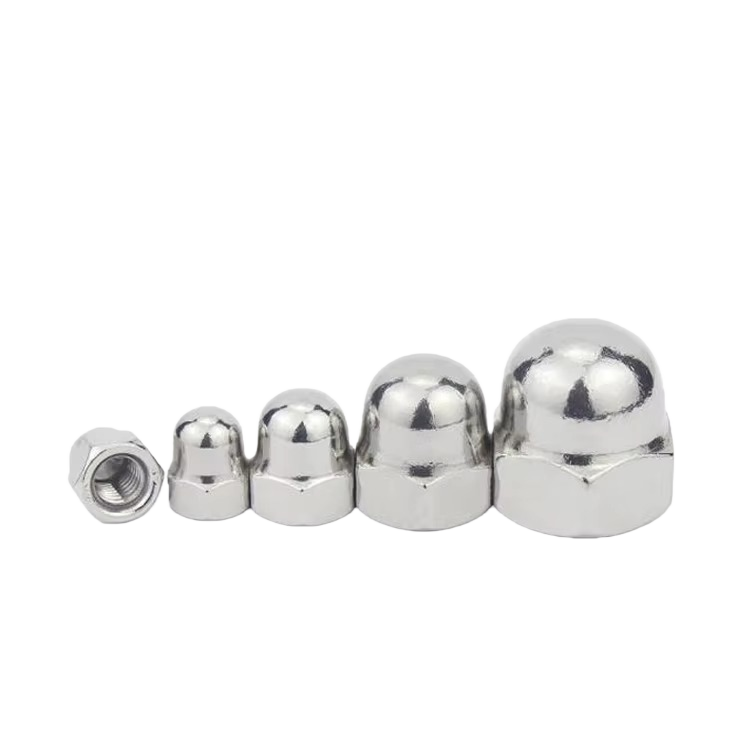A cup nut, also known as a acorn nut or domed cap nut, is a type of fastener nut with a domed or cup-shaped top that completely covers the head of a bolt or screw. It is designed to provide a smooth, finished appearance while protecting the underlying fastener from corrosion, damage, or accidental contact.
Cup nuts are commonly manufactured from:
- Steel: Often zinc-plated, nickel-plated, or stainless steel (e.g., 304 or 316) for corrosion resistance.
- Brass: Used in decorative or electrical applications for its aesthetic appeal and non-magnetic properties.
- Aluminum: Lightweight and corrosion-resistant, suitable for aerospace or marine environments.
Plastics (e.g., nylon): Used in low-strength, non-conductive, or non-marring applications.

1. Aesthetic Appeal: The domed top hides the bolt head, creating a clean, finished look in visible applications.
2. Protection: Shields the fastener from dust, moisture, and physical damage, reducing corrosion and wear.
3. Safety: Eliminates sharp edges, minimizing the risk of injury or snagging on clothing or equipment.
4. Corrosion Resistance: When made from stainless steel or plated materials, they offer good durability in harsh environments.
1. Limited Torque Application: The enclosed design makes it difficult to apply high torque with standard tools, limiting use in high-stress applications.
2. Higher Cost: Compared to standard hex nuts, cup nuts are typically more expensive due to additional manufacturing steps.
3. Reduced Accessibility: The domed shape can make installation and removal harder in tight spaces or with limited tool access.
4. Not Ideal for Adjustment: Once tightened, they cannot be easily adjusted without removal, unlike wing nuts or thumb nuts.